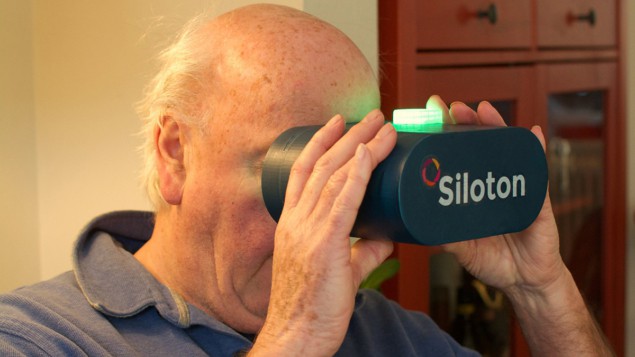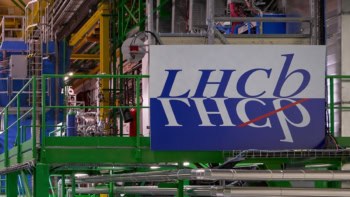James McKenzie celebrates some of the firms with a medical-physics slant that have won business innovation awards from the Institute of Physics in 2023

Most physicists are drawn to the subject by a simple desire to learn how the world works. But physics is also vital for the economy, supporting high-value jobs, generating profits, and spawning innovation in sectors ranging from renewable energy and medicine to communications and computing. It was to celebrate such firms that in 2012 the Institute of Physics (IOP), which publishes Physics World, launched its business awards to honour companies in the UK and Ireland for their innovative application of physics.
The awards have grown from strength to strength over the last dozen years (full disclosure: I was a member of the judging panel this year). In 2018 a new category was launched to honour promising start-up firms, while in 2020 the Lee Lucas award was also introduced for early-stage medical and healthcare companies thanks to a generous donation by Mike and Ann Lee (née Lucas) funding the £5000 cash prize in perpetuity. This year nine firms have won IOP business innovation awards, bringing the total number recognized to 83.
Given the size, breadth and depth of the medical-physics market, it is no surprise that five of the nine award-winners are businesses in medical physics.
Given the size, breadth and depth of the medical-physics market, it should come as no surprise that five of the nine award-winners in 2023 are businesses operating in medical physics and allied areas. Fortune Business Insights has estimated that the market for medical devices – from dentistry and surgery to diagnostics and cancer treatment – was worth $489bn in 2021 and will grow to $719bn by 2029. The market is even bigger if applications in animal welfare and food production are taken into account.
Drug delivery
The first 2023 winner I’d like to mention is the Glasgow-based firm Nebu~Flow, which bags an IOP business start-up award for its devices that deliver drugs into a patient’s lungs in aerosol form. Having previously won a Lee Lucas award in 2020, Nebu~Flow has built an acoustic nebulizer based on surface-acoustic-waves. Its device helps the medication to reach the right part of a patient’s lungs, which isn’t always possible with existing devices.
Nebu~Flow says its technology has performed exceptionally well in pre-clinical trials, with the device, for example, boosting the efficiency with which the body absorbs salbutamol – a common asthma drug – from 60% to 90%. It does this using the mechanical energy of the acoustic waves to control the aerosol droplets to be less than 5 microns in size. The technology could also allow patients to inhale drugs for treating lung hypertension and cystic fibrosis.
As for this year’s Lee Lucas award, it was won by ArtioSense, which has built a device to help surgeons position implants precisely, especially in patients having replacement hips fitted. The core technology was developed by Sohini Kar-Narayan, a materials scientist at the University of Cambridge, who co-founded the firm with the consultant orthopaedic surgeon Vikas Khanduja. Using microfluidic sensors that provide real-time force measurements, the device should make operations more successful.
Another winner this year is Bristol-based Siloton, which picks up a start-up award for developing a personal optical coherence tomography (OCT) system. It contains a specially developed photonic chip called Akepa that can image into body tissue, such as the back of the eye. Siloton’s device will be particularly useful for patients with sight loss caused by age-related macular degeneration (AMD). The condition affects a quarter of people over 60 with estimates suggesting there could be as many as 300 million AMD patients globally by 2040.
Current OCT systems for monitoring AMD are large, fragile and expensive, meaning they are mostly the preserve of hospitals and optometrists. But as Siloton’s devices are small and low cost, the company believes that patients can simply be prescribed one of the devices, which they can use themselves a couple of times a week wherever they are. It would therefore enable highly precise and personalized treatment to be devised, reducing unnecessary sight loss, and freeing up hospitals to focus on diagnosis and treatment.
Challenging questions, practical benefits and financial rewards: why medical physics has it all
Another start-up award has gone to Occuity in Reading, which has developed a hand-held device that can quickly screen and monitor ophthalmic and chronic diseases using the eye as “a window to health”. The company also hopes to start selling the world’s first truly non-contact blood glucose monitoring system for people with diabetes. Co-founded by the physicist Dan Daly, the device is non-contact, non-invasive, disposable-free and could even be used to diagnose Alzheimer’s disease, vascular dementia and sepsis.
The final company I want to mention is Dyneval, which is based in Edinburgh and has won a 2023 business start-up award for developing equipment to measure the quality of semen in livestock. Dyneval’s kit does this by monitoring the tiny fluctuations in the intensity of light passing through a sample of semen, which provides information on how well the sperm are moving. Marketed as Dynescan, the equipment allows lab-quality measurements to be carried out on farms, allowing farmers to save money by boosting conception rates among their animals.
Challenging times
One of the challenges that all physics-based firms face is the time it takes to develop products or services and to become globally significant. Medical-physics companies face the added difficulty of having to gain regulatory approval in each market, which means it can even longer to start selling their tech. There’s also the age-old difficulty of explaining a technical product idea to potential investors who have little or no science background.
That’s why the IOP’s start-up awards are great. They give small firms evidence that their technology has been reviewed by an experienced judging panel with solid physics and business experience. I hope this year’s winners will inspire your company to apply – and it may even encourage you to set up a firm of your own. Award entries open soon so watch this space and IOP announcements. In next month’s column, I’ll look at the four other companies to have won awards.




